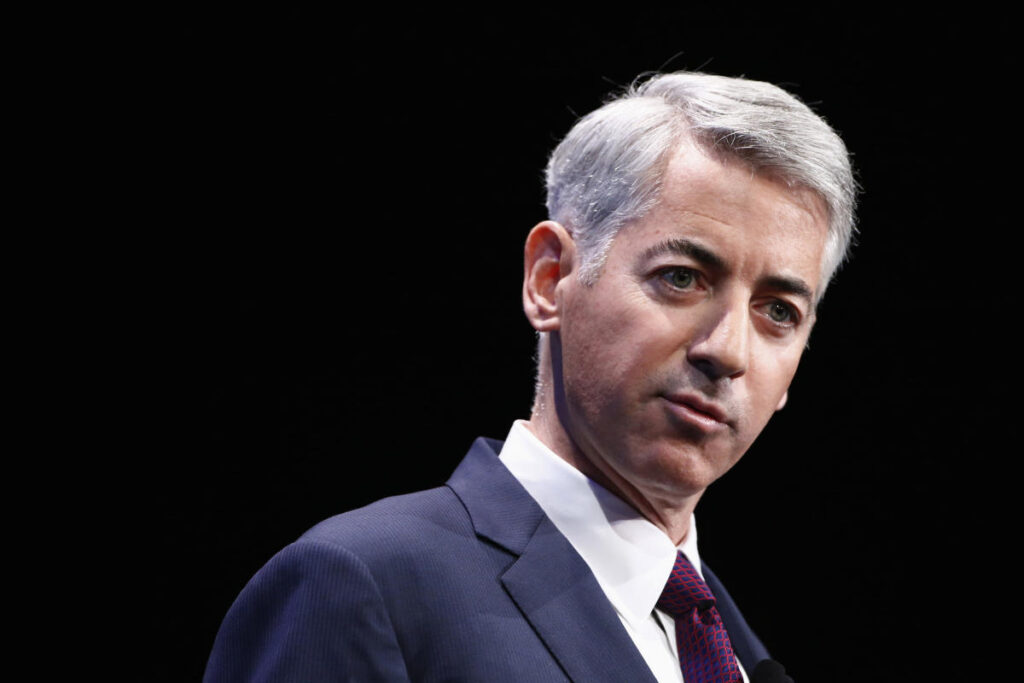In the landscape of American politics, there appears to be a disconnect between some of the most astute minds in business and investing, particularly as they align their views with political candidates. Billionaire investor Bill Ackman, along with notable figures like Elon Musk and Peter Thiel, has openly endorsed Republican nominee Donald Trump for the upcoming 2024 presidential election. Ackman’s support, articulated through a detailed social media post outlining 33 reasons, raises critical questions about the rationale behind backing Trump, given the prevailing economic analyses that forecast potential downturns under his administration relative to his Democratic rival, Vice President Kamala Harris. Such support becomes even more perplexing when considering the robust evidence suggesting that Trump’s policies could lead to higher inflation and budget deficits, while offering a less favorable economic environment compared to a Biden-Harris administration.
Delving into Ackman’s reasoning reveals a broader failure in understanding the complexities of American politics. He frames his arguments around opposing Biden and Harris, suggesting their policies create pathways for adversaries to undermine America. However, his interpretation often strays from reality, conflating local policy discussions with the broader pragmatic governance exercised at the national level. The dynamics of power in Washington differ significantly from those at the municipal and state levels, making it critical for high-powered investors like Ackman to recognize that presidential candidates, unlike local leaders, are compelled to govern from a more centrist position due to the diverse political landscape of the country. This fundamental aspect seems negated as he lists grievances that largely stem from extreme local policies, inaccurately attributing them to an administration that has largely operated within the boundaries of established norms.
Ackman’s specific points against Biden and Harris are often drawn from isolated incidents or local trends that have no substantial influence on national policy. For example, he references overreaches in liberal urban areas—such as attempts to decriminalize shoplifting or defund the police—rather than acknowledging the pragmatic responses that have shaped the Biden-Harris agenda. By fixating on these extreme examples, Ackman fails to consider that most Americans do not support such proposals. He thereby misrepresents the political intentions behind Biden and Harris’s plans, overlooking the complex and sometimes contradictory nature of their actual governance strategies, which have included increased oil and natural gas production amidst calls for greener energy policies.
Furthermore, Ackman’s oversight extends to critical examination of the Biden administration’s foreign relations and fiscal strategies. He points to anti-Israel sentiment found within segments of the Democratic Party, neglecting to recognize President Biden’s firm military and diplomatic support for Israel. In doing so, Ackman exhibits a selective analysis that undermines the concrete actions taken by the Biden administration. His arguments seem to parallel baseless criticisms targeting cognitive health, which he levels at Biden while ignoring similar concerns about Trump’s mental acuity, thus highlighting a double standard that diminishes the integrity of his reasoning.
Tech titans like Musk, Thiel, and Marc Andreessen also share their eclectic support for Trump, driven by a belief that his administration could facilitate rapid innovation and deregulation in the tech sector. They possess a techno-optimist worldview that sees Trump as a gateway to unchecked advancement in machine intelligence and technology. This could suggest a willingness to overlook the economic consequences of Trump’s proposed policies, such as those likely to result in trade wars and elevated inflation. These billionaires may underestimate the backlash such deregulation invites, especially given the historical experiences seen with powerful industries facing public scrutiny and state intervention.
In contrast, a Harris presidency is projected as a continuation of the status quo, characterized by returning inflation rates to manageable levels and stock markets performing well. While billionaires may voice disdain for the repercussions of a Harris administration, the economic landscape shows signs of stability, implying that billionaire interests may not necessarily align with broader public welfare concerns. The reality remains that actions taken by Trump could incur economic challenges that disproportionately affect citizens, raising fundamental considerations about the responsibilities of wealth and influence in political choice. The underlying question prevails: Do billionaires truly grasp the political landscape they navigate, or do they overshadow evidence-based analysis with ideological biases that could undermine economic stability for investment-driven interests?
In summary, the political endorsements from business elites like Bill Ackman and his counterparts illustrate a broader trend: a notable unwillingness to engage deeply with the realities of governance and its implications on both economic and social fronts. Their approach often skirts the complexities of bipartisan politics and the essential need for pragmatism in the leadership of a diverse nation. As they seek to manipulate political outcomes in favor of their economic ideologies, they risk reinforcing ill-informed narratives that could have deleterious effects on America’s political integrity and prosperity. Ultimately, the challenge lies in reminding these influential figures that the consequences of their political alignments extend far beyond their immediate interests, impacting the very fabric of American democracy and its economic future.

